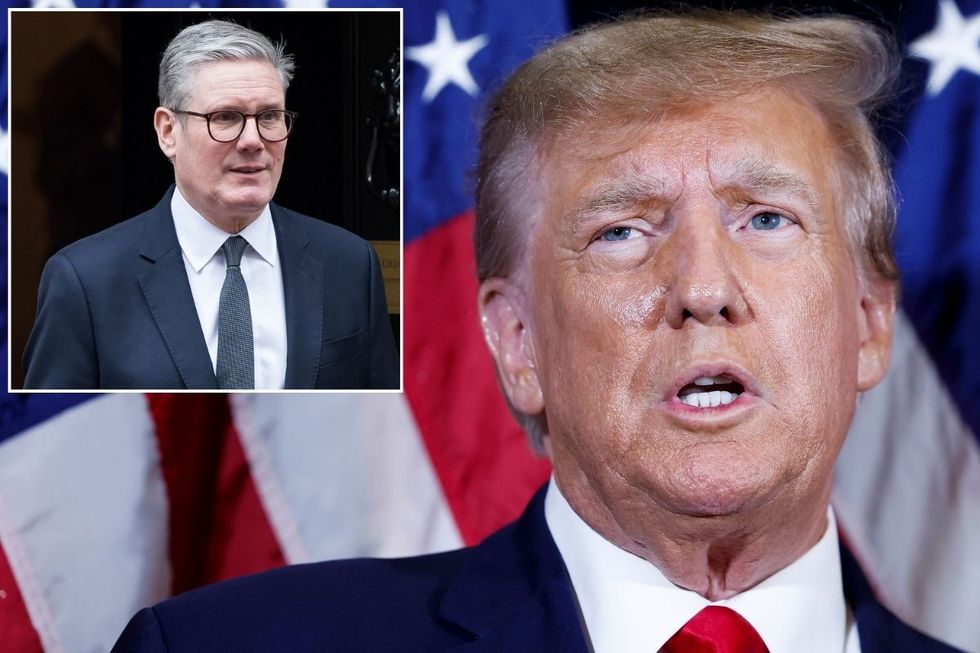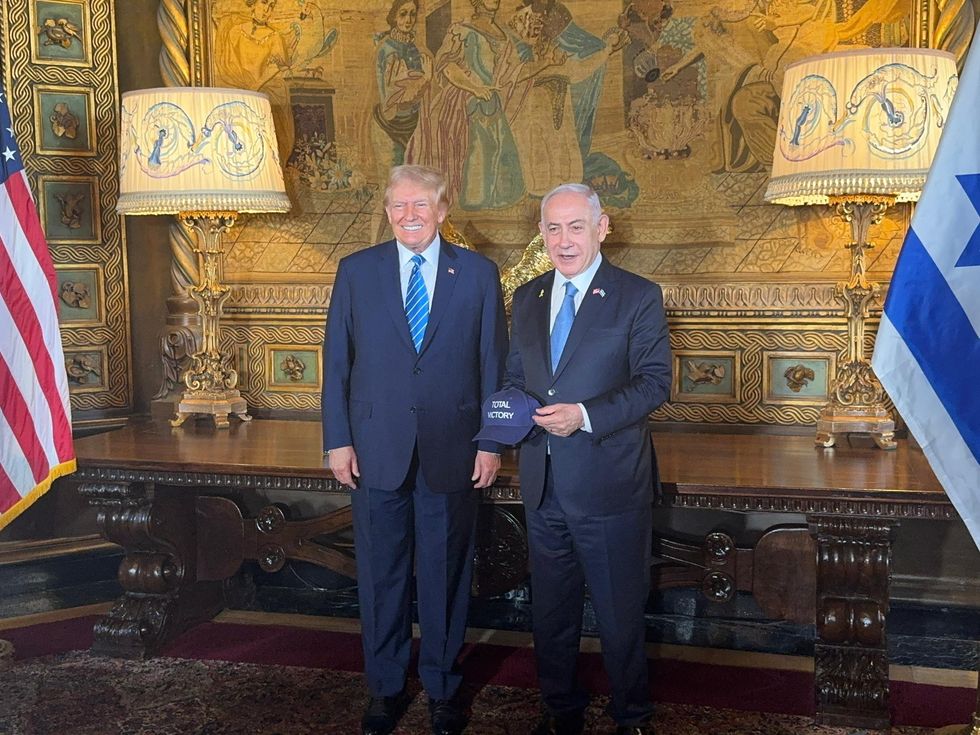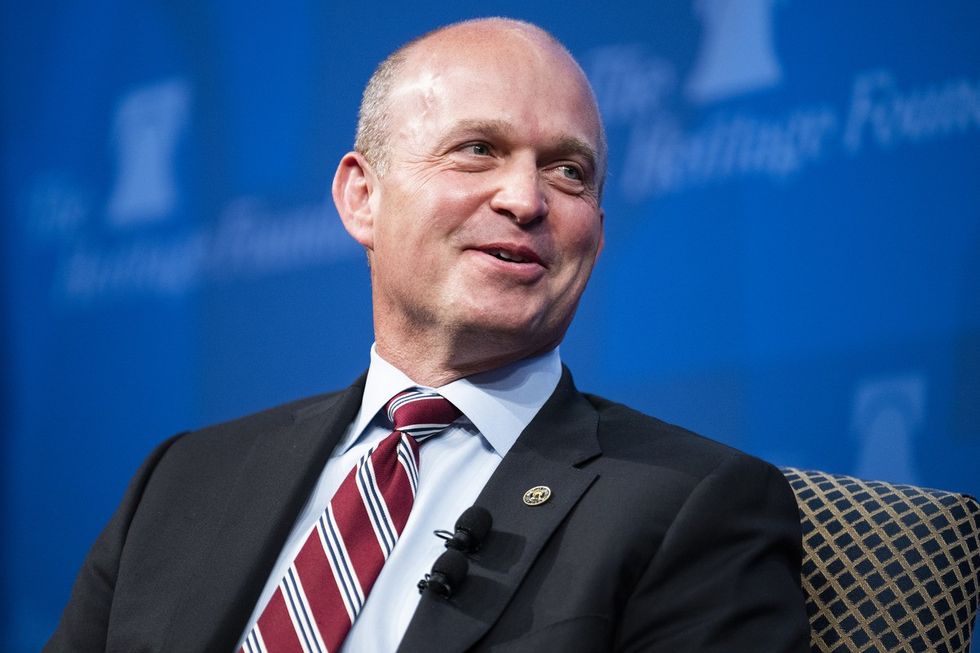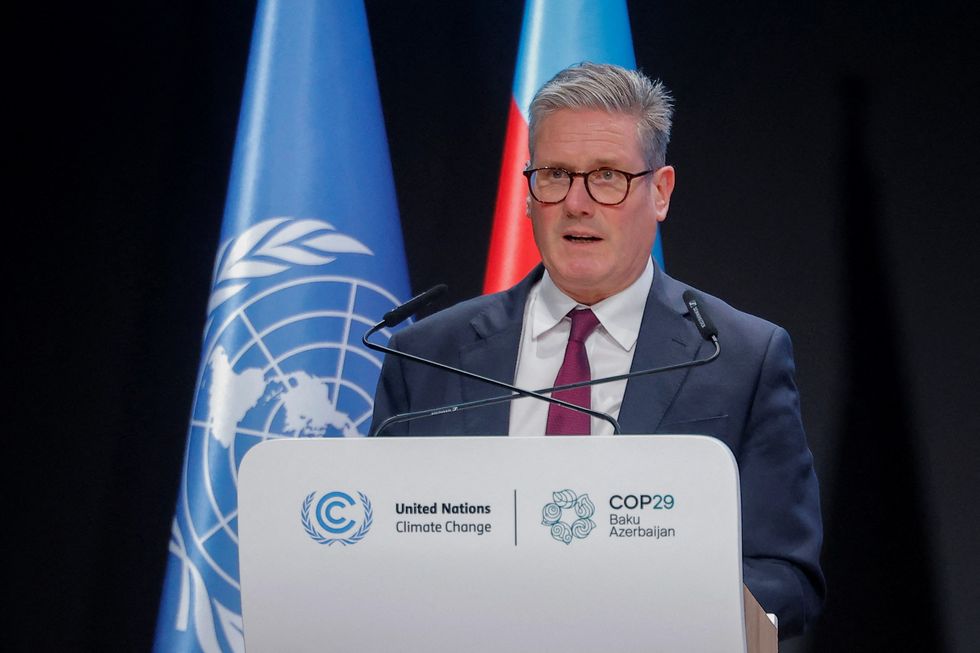“Hell to pay.” That’s the warning a senior Trump ally issued to world leaders who go along with the arrest warrant issued by the International Criminal Court for Israeli Prime Minister Benjamin Netanyahu.
Kevin Roberts, who leads the influential Heritage Foundation, a think tank credited with much of Donald Trump’s policy agenda and an incubator for at least four of the incoming President’s major executive appointments to date, last night revealed to GB News the fury of the incoming administration towards what many in Trump’s orbit regard as an illegitimate court.
To date, British Prime Minister Keir Starmer has tried to fudge the issue of whether or not the United Kingdom would abide by the arrest warrant, refusing to answer questions directly as to whether British police would arrest the Israeli leader were he to set foot on British soil.
Starmer may have to come off the fence soon as Roberts made it clear to GB News: “There will be hell to pay for any international leader buying into this bulls**t.”

Donald Trump with an inset of Keir Starmer
GETTY
Trump becomes US President on January 20, at which point he will be able to exert extraordinary pressure on foes and allies alike.
The extraordinary decision of the International Criminal Court to issue an arrest warrant has split the international community.
Leaders from Ireland, the Netherlands, Belgium, Spain, Slovenia, and Austria have all said they would arrest Netanyahu, whilst so far only the United States and Hungary have been unambiguous from day one in saying they would refuse to do so.
Significantly, when asked directly about the warrant, Germany’s chief government spokesman told reporters it is “hard to imagine that arrests could be made in Germany on this basis”.
LATEST DEVELOPMENTS:
 Donald Trump and Benjamin NetanyahuBENJAMIN NETANYAHU
Donald Trump and Benjamin NetanyahuBENJAMIN NETANYAHUItaly, and the United Kingdom have all made warm noises towards upholding the Rome Convention, which underpins the International Criminal Court, leading many to speculate that these two G7 countries could indeed arrest Netenyahu.
Though both refuse to say so specifically, relying on strategic ambiguity.
That ambiguity may not hold for long once Donald Trump returns to the White House.
Interestingly, until this morning France had also taken this ambiguous stance, only to announce within the last hour that Netanyahu is entitled to immunity from ICC arrest warrants “because Israel is not a party to the court”.
 The Heritage Foundation president Dr. Kevin Roberts GETTY
The Heritage Foundation president Dr. Kevin Roberts GETTYPerhaps the sands are already shifting. Trump’s senior allies are clear that they hold the International Criminal Court in very low esteem, indeed the United States and Israel both withdrew from the ratification process of the ICC in 2002, meaning neither country is a party to its judgements.
Trump has signalled his intent to use trade sanctions and tariffs as a geopolitical tool to ensure countries bend to his will.
At the help of the world’s richest and most powerful economy, President Trump will have significant levers to exert pain on countries that act in ways he does not like.
“Hell to pay” could see targeted tariffs or freezing out of wider cooperation. This could be particularly damaging for the United Kingdom which has hoped for a free trade agreement with the United States but also works incredibly closely on intelligence sharing through the Five Eyes network.
Another headache for the United Kingdom is that one man with Donald Trump’s ear is Elon Musk.
The world’s richest man has described Keir Starmer’s Britain as a “tyrannical police state”, and already threatened to haul British politicians before United States congressional committees to defend their anti free speech legislation.
 Keir Starmer in BakuREUTERS
Keir Starmer in BakuREUTERSCould the combination of this steady drumbeat of negative news about Britain and its leadership, together with the insulting anti-Trump language used by senior Labour politicians, and now this clear threat raised by Roberts all add up to a tangible cocktail of terrible news for Prime Minister Keir Starmer?
Quite possibly. The incoming US President has also suggested that he might not uphold Article V obligations to defend Nato countries were they attacked.
Article V of the treaty ensures an attack against one is an attack against all, meaning European countries have been able to rely on America’s powerful military to ensure their defence for seventy years.
Could part of “hell to pay” see that protection withdrawn? Only time will tell. What’s clear is that we are past the point of soft deliberative diplomatic relations. Welcome to the era of hard power.